Bitdefender vs. Kaspersky: Which antivirus is better?
Bitdefender vs. Kaspersky: Which antivirus is ameliorate?

Bitdefender Antivirus Plus and Kaspersky Anti-Virus are two of our best-reviewed antivirus programs, but how do they stack up in a head-to-head battle for supremacy?
To discover out, we compared how skillful each program is at catching malware, while too studying their feature sets and testing their performance impact on a reckoner organization. In improver, we gave their user interfaces a serious examination.
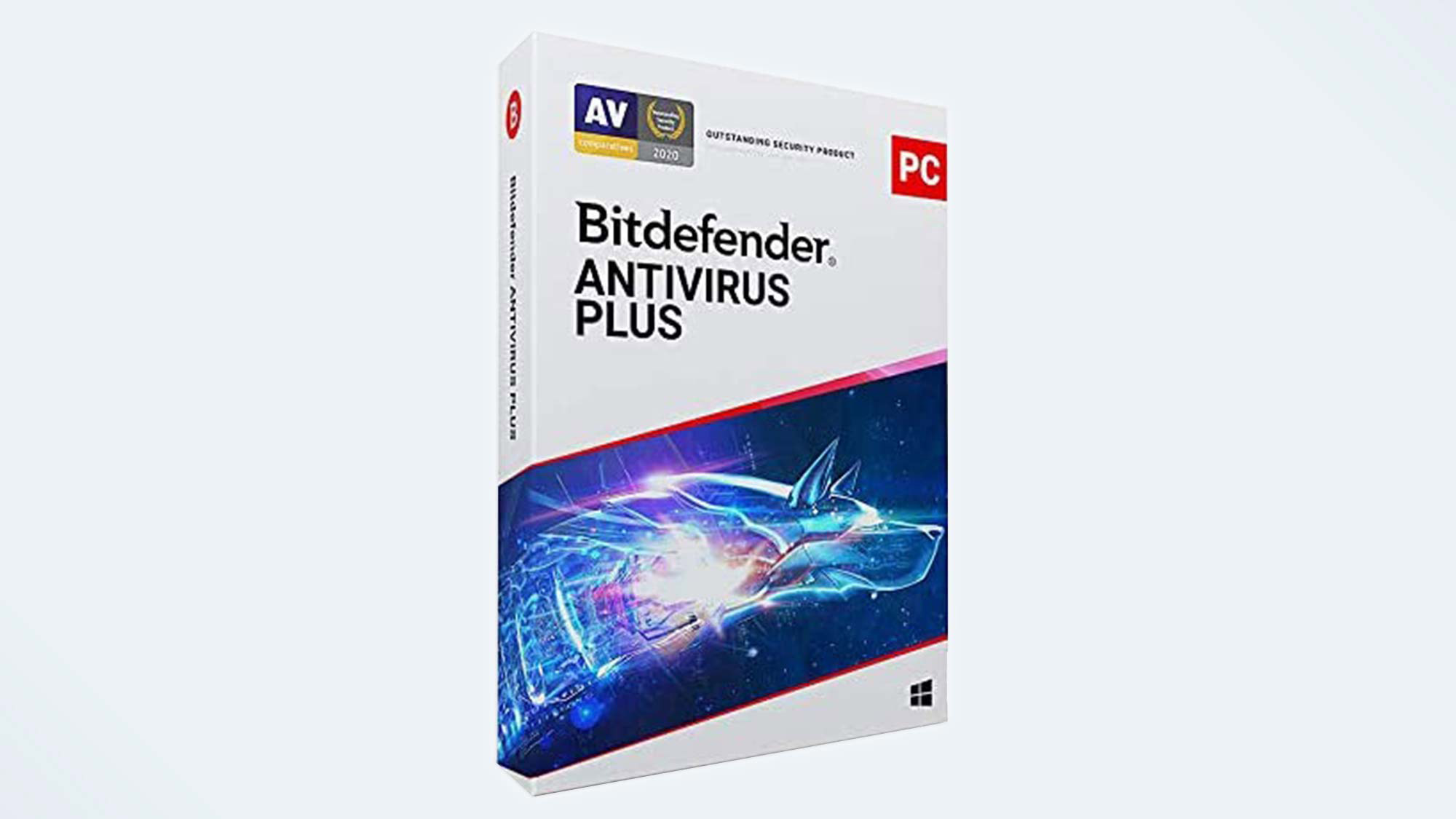
Bitdefender Antivirus Plus
Bitdefender Antivirus Plus has an intuitive user interface and a lot of extra features, such equally a password manager, a file shredder and a secure browser.
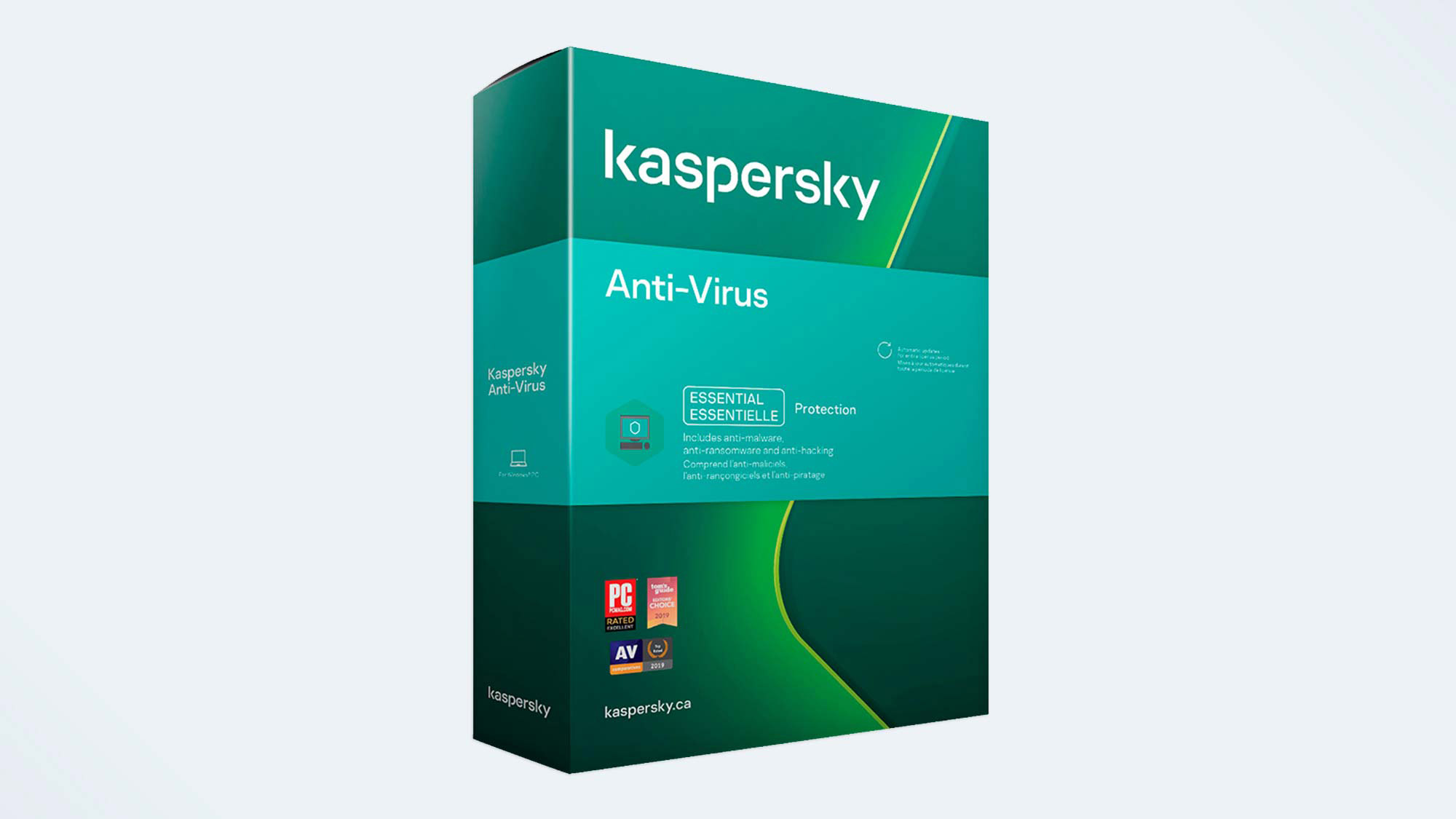
Kaspersky Anti-Virus
Kaspersky Anti-Virus has a small advantage in malware detection and a lighter system impact than Bitdefender, but a clunkier interface and fewer useful features and tools.
Subsequently multiple rounds of comparing, Bitdefender Antivirus Plus (starting at $19.99 for 1 PC) comes away with a victory, thanks to its wealth of useful functions and features and its piece of cake-to-use interface. Kaspersky Anti-Virus (starting at $39.99 for three PCs) has a very slight edge in malware detection and a lighter system impact.
- How to buy antivirus software
- The all-time Windows 10 antivirus software
- 12 computer-security mistakes y'all're probably making
Malware detection
To mensurate how capable each of these programs is at detecting malware, we've used results from 2 independent product-testing labs, AV-Examination in Deutschland and AV-Comparatives in Austria.
These companies exam products from about 20 leading antivirus brands by throwing a seismic sea wave of malware at calculator systems, and so measuring how many files are defenseless and how many go undetected.
Near every month, AV-Comparatives exposes computers running 64-bit Windows 10 to the latest online malware in what the lab calls its "existent-world" protection tests confronting the latest online malware.
AV-TEST uses two benchmarks: Information technology attacks systems with make-new "zero-24-hour interval" malware that hasn't been seen before (for which advanced detection features are needed), but also subjects computers to "widespread" malware that has discovered and identified in the previous four weeks (which can be spotted by matching known malware "signatures"). AV-Exam'south evaluations final 2 months apiece and employ 64-bit Windows 10.
The Bitdefender and Kaspersky Lab products tested by both labs were not the verbal ones we're comparing here. Instead, they were the "intermediate" suites, Bitdefender Net Security and Kaspersky Internet Security, which offer several more features than their cheaper counterparts.
Just considering each brand uses one malware-detection "engine" for all its Windows products, the protection results should exist the aforementioned across a product line.
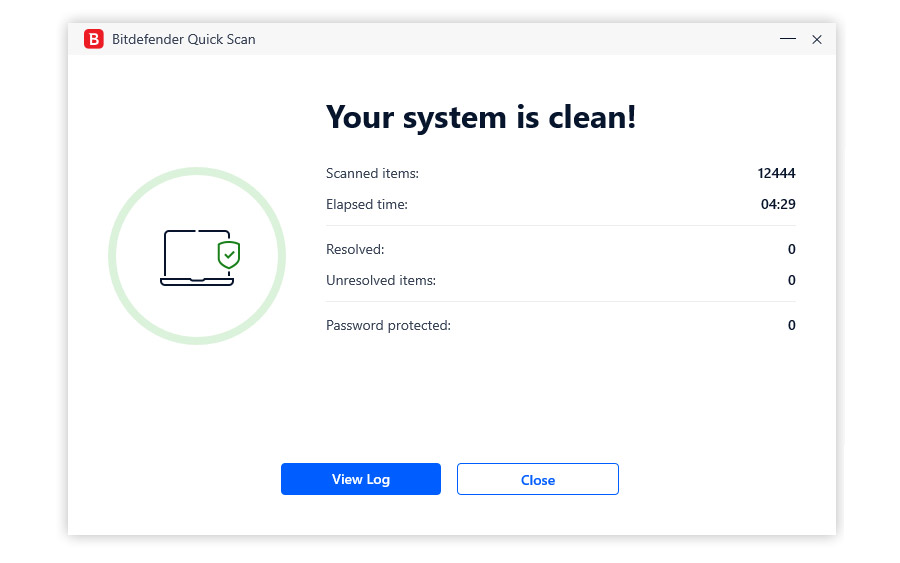
Bitdefender earned four flawless, 100% detection rates in AV-Test's January and Feb 2021 Windows 10 evaluations against both zero-day and widespread malware. Kaspersky did the same. The just deviation was that Bitdefender registered a unmarried false positive — a benign detail mistakenly tagged as malware — while Kaspersky had none.
The detection rates were the same in the two previous rounds of AV-Test evaluations, in Nov/December and September/October 2020 — 100% detection rates across the board.
The differences, over again, were in the faux-positive rates: Bitdefender racked upwards 12 in November/December and 8 in September/October. Kaspersky registered but one in the former and zero in the latter.
This all indicates that Kaspersky's malware-detection engine is ameliorate "tuned" than Bitdefender's and has a keener sense of when something's malicious versus when it'due south non. (It'south non always easy to tell.) Bitdefender's detection engine appears to be overcompensating to make sure it doesn't miss whatever malware.
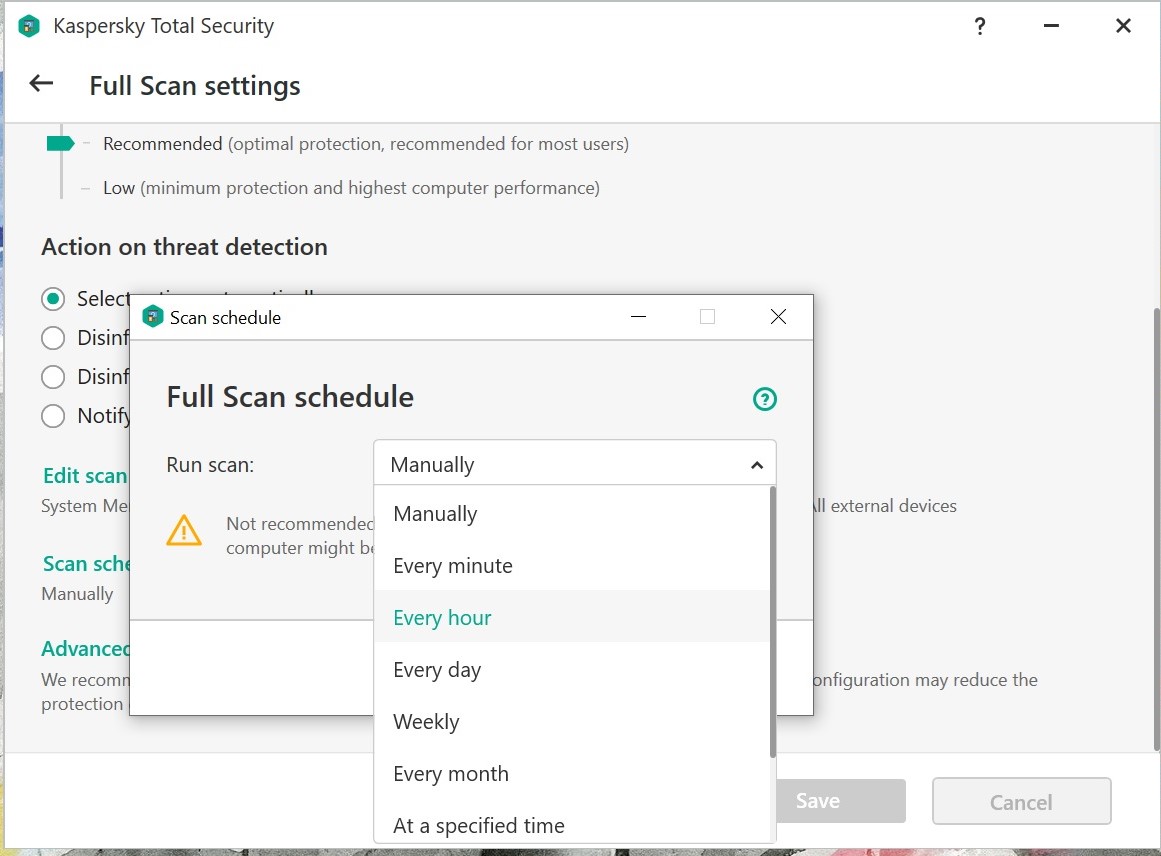
The difference were less pronounced in AV-Comparatives' tests, where the two were more evenly matched. In the Feb.-March 2021 tests, Bitdefender caught 99.7% of malware and detected four false positives, while Kaspersky caught 99.2% per centum and raised nil false flags.
In the previous round of AV-Comparative tests, from July through October 2020, Bitdefender caught an average of 99.half-dozen% of malware with iv false positives, while Kaspersky had a 99.vii% detection charge per unit with two faux positives.
Despite this muddled result, we all the same have to give this round to Kaspersky based on the AV-TEST results.
Winner: Kaspersky Anti-Virus. Bitdefender is practiced, but Kaspersky is improve.
Ease of use and of installation
Bitdefender Antivirus Plus and Kaspersky Anti-Virus share similar installation processes, but they differ in their interface designs.
If you download the software and pay online with a credit carte, either one will sign y'all up for automatic renewal, charging your card again when your paid subscription expires. This feature is either a convenience or an annoyance, depending on your perspective, but it can be disabled after installation.
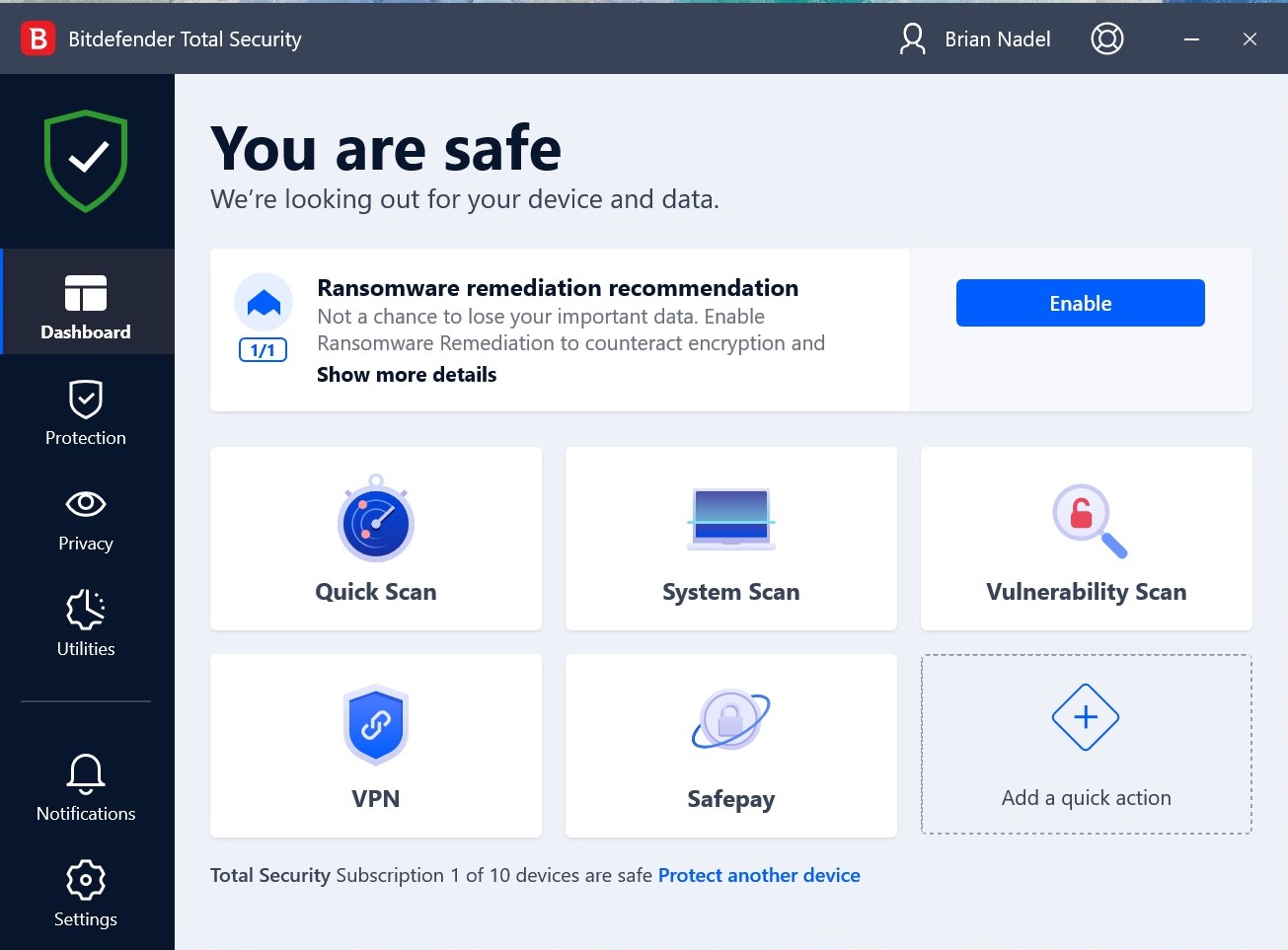
Each suite's installation process takes about 5 to vi minutes and is spread out over two sections. Bitdefender also creates a hidden partition on the C bulldoze called the Rescue Environment that tin reboot the hardware into a fresh build of Windows 10 and make clean severely infected computers. Kaspersky offers a rescue disk that boots into Linux to do the same thing — information technology tin be downloaded and burned to optical disks or installed on USB drives.
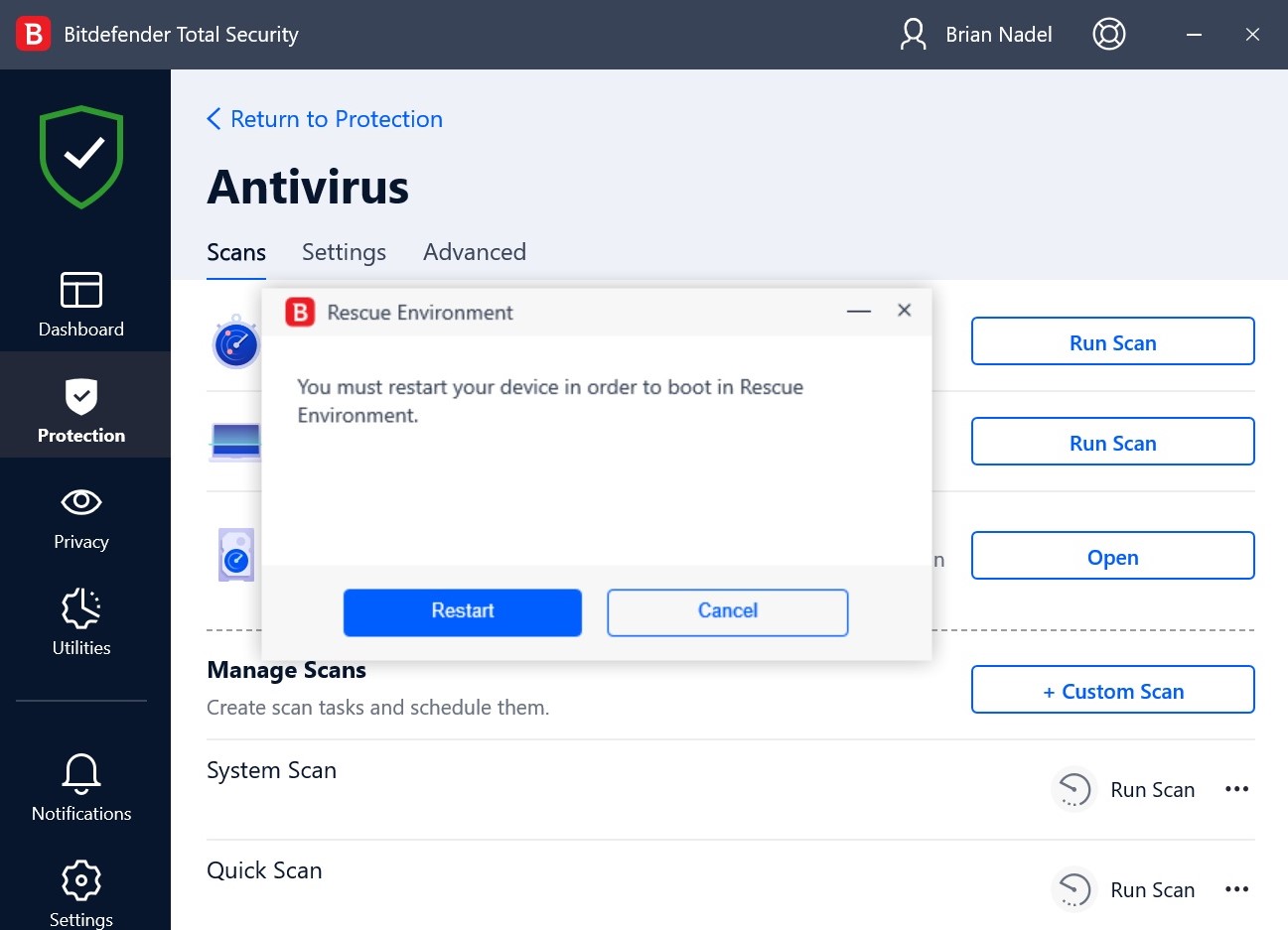
Both programs offer status updates on their dwelling house screens, including the ability to manually start scans right abroad. (That may not be necessary because both programs monitor all system action in the background.) Bitdefender too places a handy status widget in the bottom right of the desktop that tin can run all the fourth dimension.
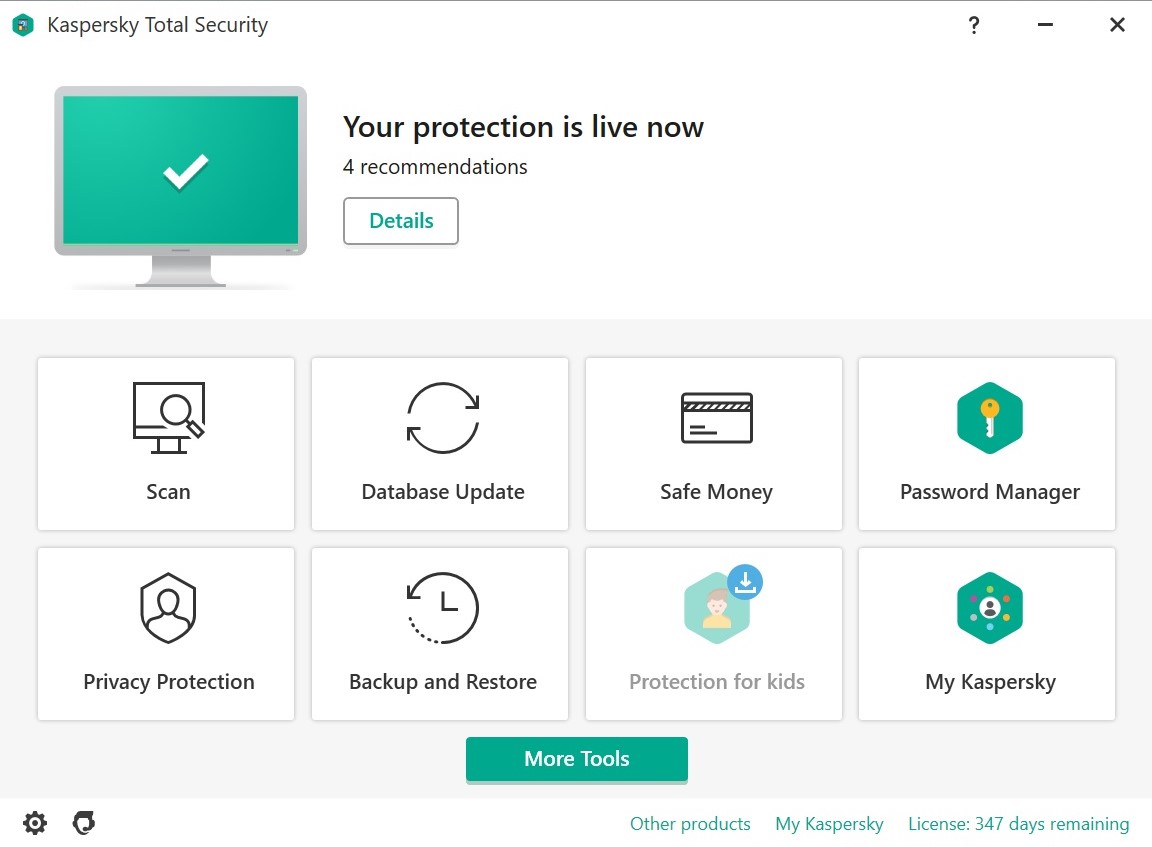
If the Rescue Environment and status widget weren't enough to requite Bitdefender an border, Kaspersky's duller, somewhat mismatched layout dooms it. The Kaspersky screens look better than they did a few years agone, but they have a lot of white infinite that wastes real manor. Bitdefender Antivirus has a well-equanimous layout that puts more controls in front of the user.
Winner: Bitdefender Antivirus Plus. It looks friendlier and is easier to use.
Organization performance affect
We measured the bear upon that Bitdefender and Kaspersky had on our laptop by measuring how quickly our Excel benchmark test finished, both afterward each plan was installed and during active scans. The Excel test checks how quickly a system tin can friction match twenty,000 names to 20,000 addresses on a spreadsheet.
Subsequently installation, but earlier whatsoever active scan was started, Bitdefender Total Security, the beefed-upwardly blood brother of Bitdefender Antivirus Plus, slowed our test laptop (a Lenovo ThinkPad T470 laptop with a two.5GHz Cadre i5-7200U processor, 8GB of RAM and 256GB of solid-state storage containing 61.2GB of files) by 19%, a rather pregnant corporeality. By contrast, Kaspersky Total Security slowed things by just well-nigh 12%.
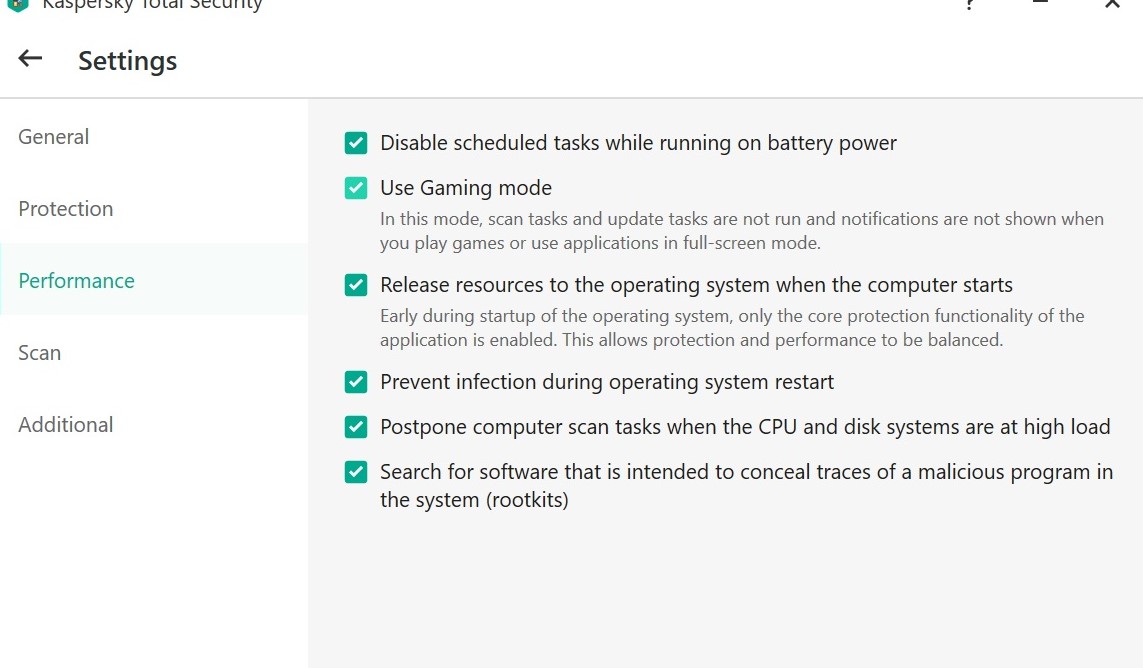
The results of the active scans followed the same pattern.
During a Bitdefender full scan, the Excel test finished its process in thirteen.8 seconds, a 32.7% percent slowdown from the pre-installation baseline of 10.four seconds. During Kaspersky'southward full browse, our benchmark finished in 12.9 seconds, virtually a 2d alee of the Bitdefender test and a 26.5% slowdown from the pre-installation baseline of 10.2 seconds.
Kaspersky scored another win with its quick scan, during which the Excel exam finished in 12.4 seconds, or 21.6% slower than the baseline. During the Bitdefender full scans, the Excel test finished in xiii.half dozen seconds, 30.viii% slower than the baseline.
Winner: Kaspersky Anti-Virus. Kaspersky clearly has the lighter touch.
Security features
Bitdefender Antivirus Plus and Kaspersky Anti-Virus each offer plenty of security features. One of the nigh of import is a defended defense force against ransomware, and both products take steps to immediately brand copies of files under attack then that they can be restored if the originals are encrypted.
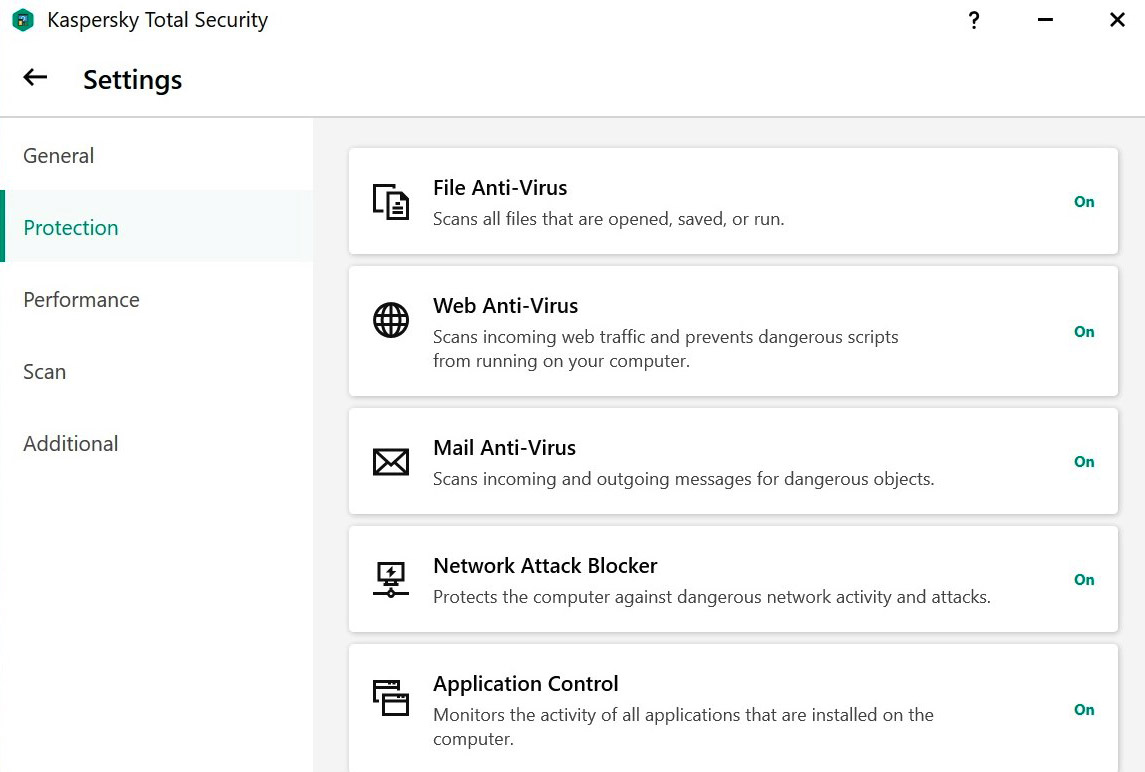
Bitdefender Antivirus Plus and Kaspersky Anti-Virus share several useful features, including a network scanner to find potentially malicious devices, automated blocking of links to known phishing websites and an onscreen keyboard on which you tap out "keys" with your mouse to foil keylogging malware.
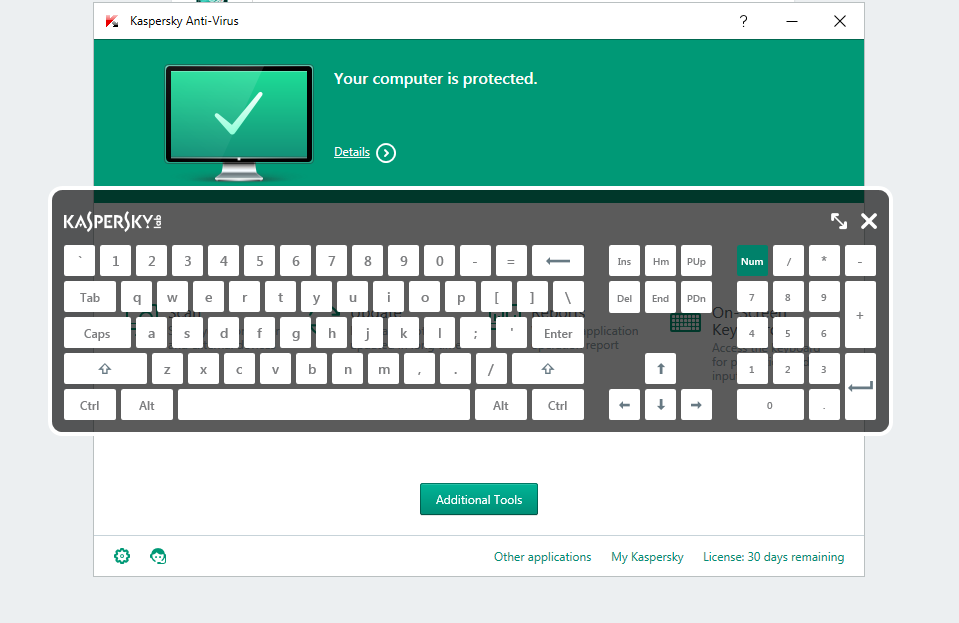
While Kaspersky's virtual keyboard stands solitary, Bitdefender's is office of its Safepay secure browser, which protects users by limiting extensions and disabling screenshots while visiting online banking and shopping sites.
You won't become a like secure browser in Kaspersky Anti-Virus; you'd accept to upgrade to Kaspersky Internet Security.
Kaspersky Anti-Virus' unique feature is that it monitors your PC for the presence of "stalkerware," spyware that'due south often used by jealous spouses or snooping employers to keep tabs on you.
On the other hand, Bitdefender Antivirus Plus checks your arrangement for necessary updates and outdated software, blocks online trackers in web browsers and gauges the security of the Wi-Fi networks you connect to.
Winner: Bitdefender Antivirus Plus. It's simply got more than useful security features.
Each of these antivirus solutions offer features that may non protect you, but are handy. Both Bitdefender Antivirus Plus and Kaspersky Anti-Virus offer a "game mode" and then you can play a game or lookout man a movie without the program interrupting your activity.
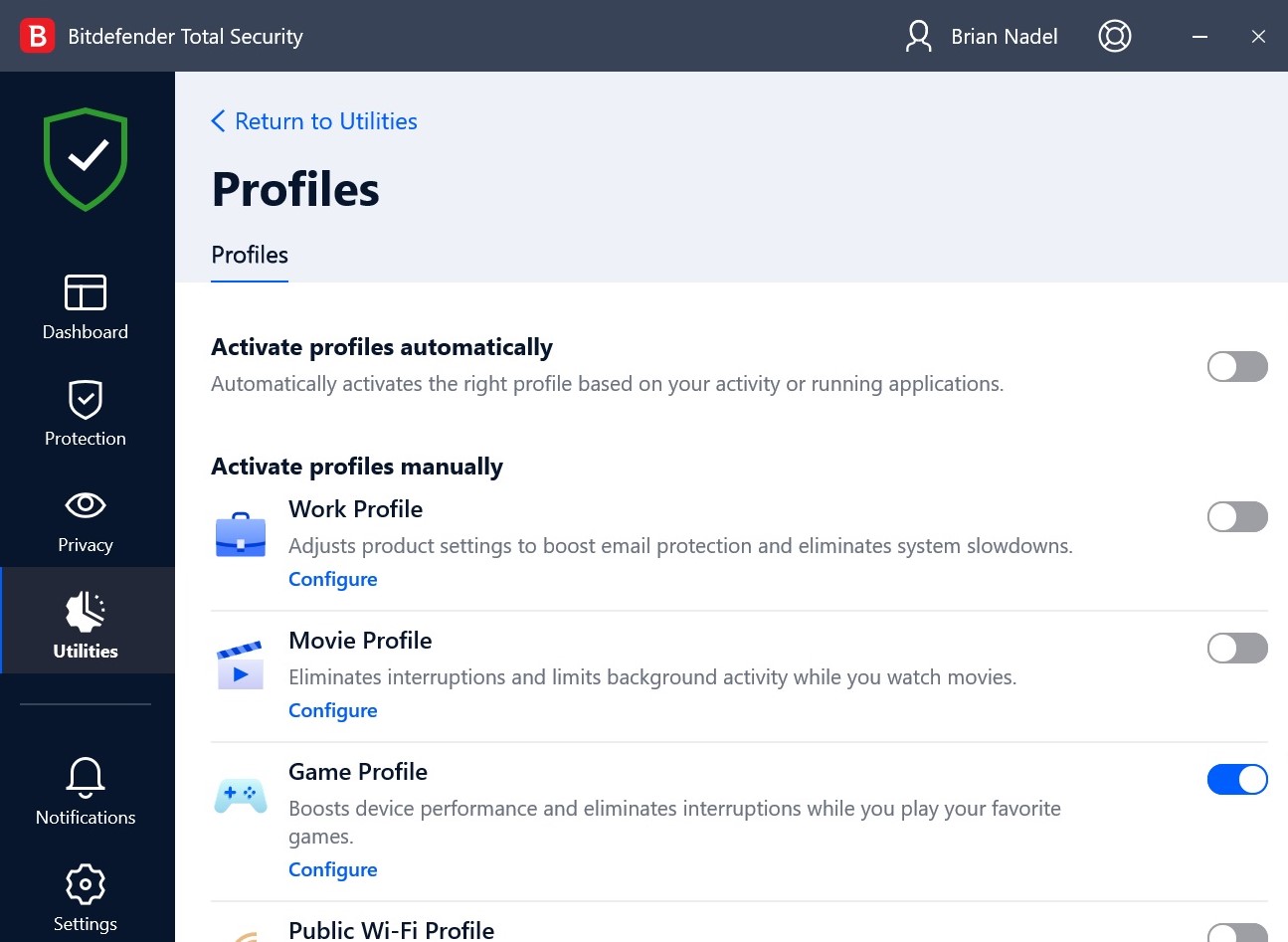
Bitdefender Antivirus Plus also gives users a file shredder for the secure deletion of sensitive material, and an unlimited countersign manager that allows you to create and manage complex, difficult-to-crack passwords.
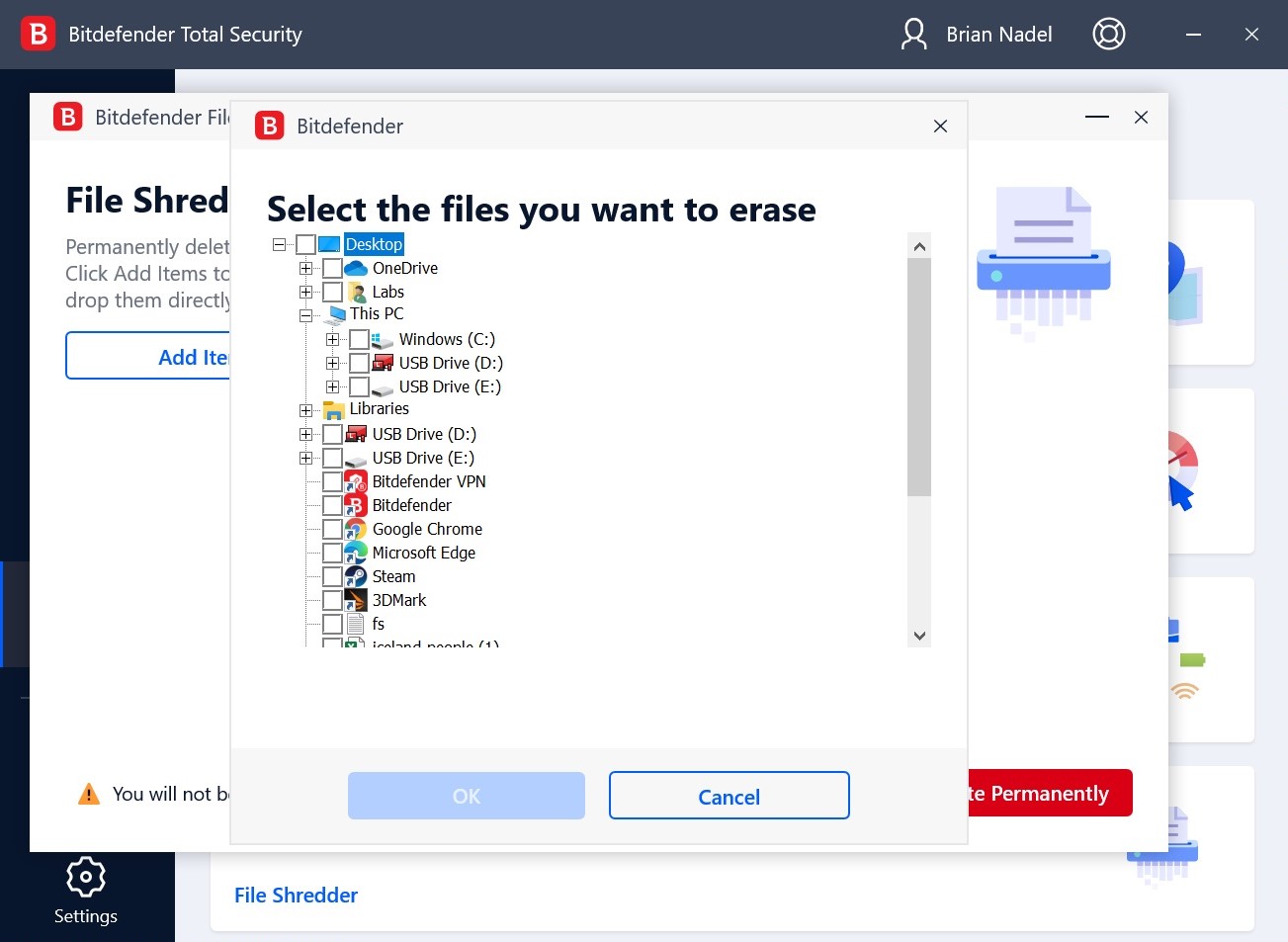
The Bitdefender countersign manager has one big catch: It runs only on Windows. Bitdefender has said the countersign director may be ported to iOS and Android, just has ruled out a Mac version.
Meanwhile, the password manager on Kaspersky Anti-Virus is express to only xv sets of usernames and passwords. It'south a teaser for the full stand-lonely Kaspersky password director, which costs $15 per year yet may be worth it.
Most of the best password managers cost twice as much, and Kaspersky's runs on Windows, Macs, iOS and Android alike.
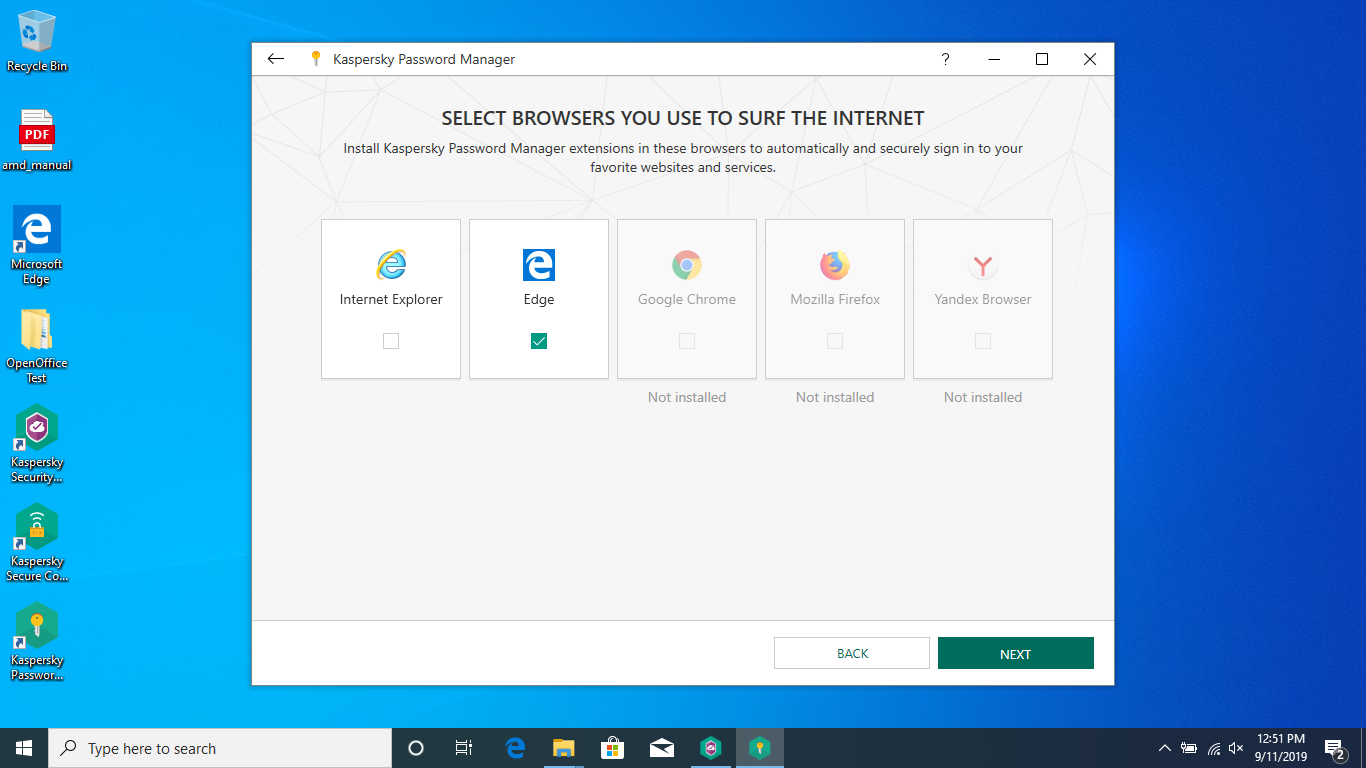
Bitdefender's Wi-Fi scanner, mentioned in the previous department, is also an enticement to get you lot to use Bitdefender's VPN service. You go 200MB of daily VPN data to use for complimentary with Bitdefender Antivirus Plus, after which you lot take to pay $twoscore per year.
Kaspersky Anti-Virus counters this with 300MB of its own gratis VPN data daily, and its unlimited service costs only $30 per twelvemonth. (Both Bitdefender and Kaspersky's VPNs are inexpensive compared to most of the best-known VPN services.)
Overall, Bitdefender Antivirus Plus offers a bigger gear up of features than Kaspersky Anti-Virus right out of the box, even if Kaspersky's products are a chip better once you've paid extra.
Winner: Bitdefender Antivirus Plus. Having a congenital-in file shredder and unlimited password manager give it the edge.
| Bitdefender Antivirus Plus | Kaspersky Anti-Virus | |
|---|---|---|
| Malware detection | X | |
| Ease of apply, installation and layout | 10 | |
| Organization performance impact | 10 | |
| Extra security features | X | |
| Actress non-security features | Ten | |
| Winner | Ten |
Bottom line
While Kaspersky Anti-Virus has a slight edge on malware detection and a somewhat larger advantage on arrangement touch, those are outweighed by Bitdefender Antivirus Plus' overall user-friendliness.
Non only does Bitdefender Antivirus Plus give you more bang for the buck with a solid fix of extra security functions and useful tools, but it'southward got a more intuitive, accessible interface.
- The best internet security suites
Source: https://www.tomsguide.com/news/bitdefender-vs-kaspersky-antivirus
Posted by: wilsonhimattim.blogspot.com


0 Response to "Bitdefender vs. Kaspersky: Which antivirus is better?"
Post a Comment